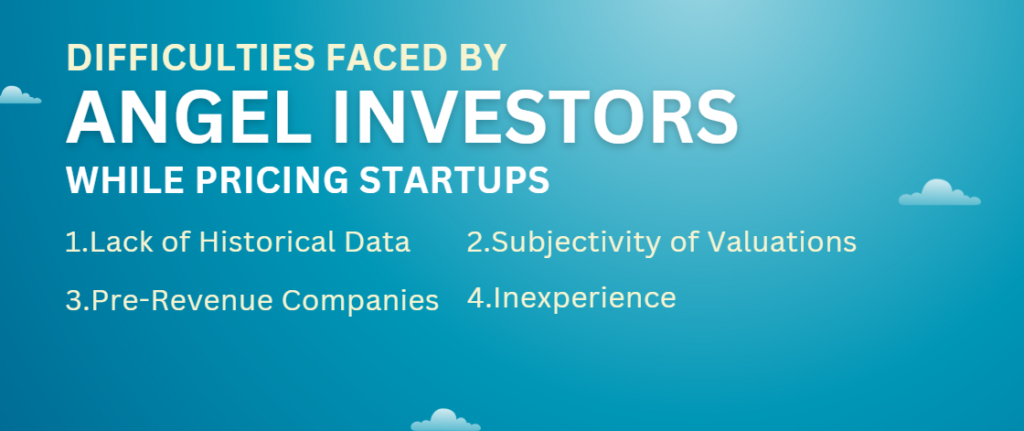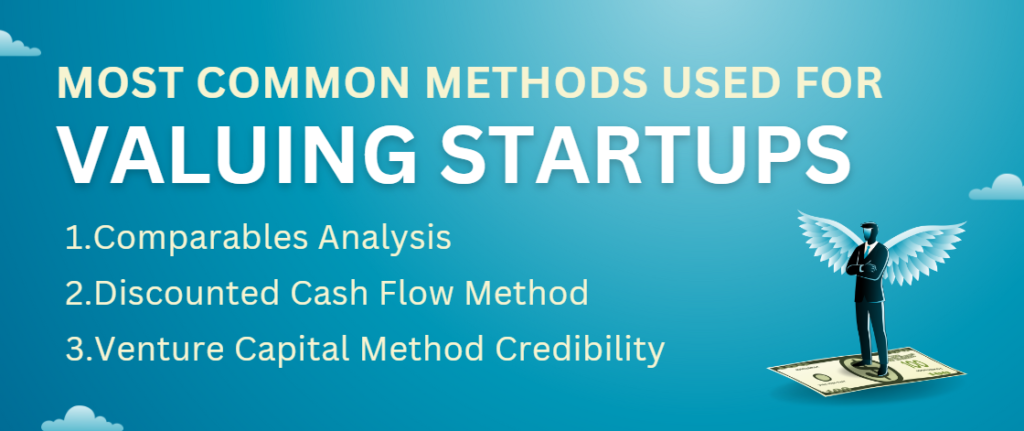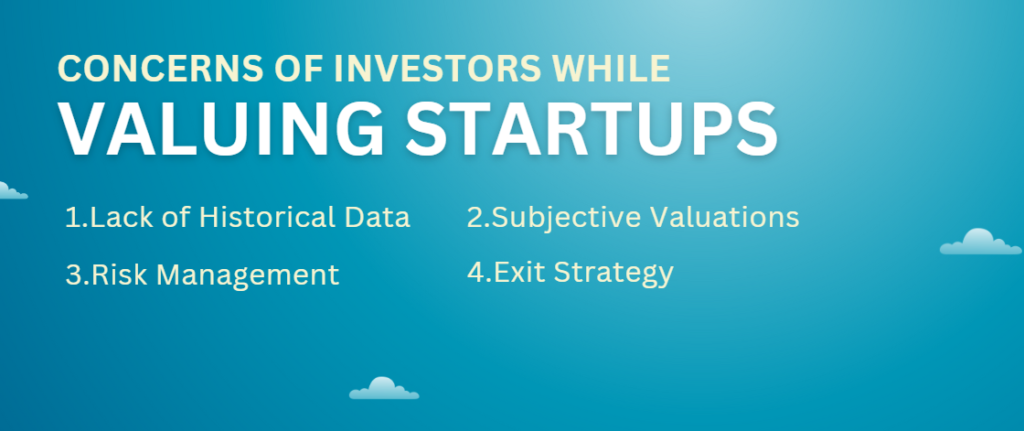
What is Angel Investing?
Angel investing refers to the practice of high-net-worth individuals, or angel investors, investing their funds in early-stage startups. These investors often provide not just financial support but also mentorship, guidance, and industry connections to help startups grow and succeed.
Angel investors for startups are typically individuals with business experience who are willing to take risks in exchange for potentially high returns. For example, the founder of Amazon, Jeff Bezos, was an early angel investor in Google, providing $250,000 in seed funding in 1998.
Angel investing can be a critical source of early-stage funding and support for startups, as we’ll explore in more detail in the next paragraph.
Why is Angel Investing Important for Startups?
Angel investing is vital for startups as it provides the initial funding they need to get off the ground. Angel investors’ startups are often willing to take on more risk than traditional investors, such as venture capitalists, as they typically invest their personal funds. In addition to funding, angel investors can offer valuable advice and industry links, which can be crucial for startups that lack experience and networks. Furthermore, angel investors can help startups build credibility and attract additional funding down the line.
Thus, angel investing is essential for startups as it can help them overcome the challenges of early-stage funding and provide the resources they need to grow and succeed. In the next paragraph, we’ll explore the benefits of angel investing in more detail.

Benefits of Angel Investing
Angel investing provides several benefits to startups; here are some of the key benefits:
- Access to Funding- Angel investors can provide the initial funding that startups need to get off the ground. Business angels in the USA can invest their personal funds, which can be crucial for startups that may be unable to secure traditional financing from banks or venture capitalists. An Angel investment network also provides an opportunity for startups to connect with a broader pool of investors, increasing the probability of securing funding.
- Expertise and Mentorship- Angel investors often have years of experience in business, finance, and entrepreneurship. This expertise can be invaluable to startups, as angel investors can provide guidance and mentorship to help them navigate the challenges of early-stage development. In addition to mentorship, angel investors can also provide connections to industry experts and other resources that can help startups grow and succeed.
- Networks and Credibility- Angel investors have extensive networks, which can benefit startups looking to expand their reach and establish credibility. By having an angel investor on board, startups can demonstrate to potential customers and partners that they have the support of a respected business leader.
So, these are the benefits of angel investing. In the next paragraph, we’ll explore various methods for pricing startups, which can be essential for both angel investors and startups.
Various Methods for Pricing Startups
Pricing a startup can be challenging, especially for pre-revenue companies. The lack of historical data and the subjective nature of valuations can make it difficult to determine a fair value for the startup. Here are some of the various methods for pricing startups:
- Discounted Cash Flow (DCF)- This method estimates the present value of future cash flows and discounts it to reflect the time value of money. However, DCF requires many assumptions about future revenue and growth, which may not be accurate for startups.
- Market Approach- This method compares the startup to similar companies that have been sold or gone public. However, the market approach can be challenging for pre-revenue companies, as there may not be many comparable companies.
- Asset-Based Approach- This method values the company based on the value of its assets, such as patents, equipment, and inventory. However, this method does not consider the potential value of the startup’s intellectual property or future revenue.
Despite these methods, valuing a startup remains a subjective process, and different investors may have different opinions on the value of the company. This subjectivity can create difficulties for angel investors for startups looking to invest in companies with high growth potential. Next, we’ll explore some of the problems angel investors face while pricing startups.

Difficulties Faced by Angel Investors While Pricing Startups
Angel investors’ startups face several challenges when determining the appropriate valuation for a startup. Here are some of the difficulties faced by angel investors:
- Lack of Historical Data- Startups typically have limited financial data, making it challenging to project future cash flows accurately. This lack of data can make it challenging to determine a fair valuation.
- Subjectivity of Valuations– Valuing a startup can be subjective, and different investors may have different opinions on the company’s potential value. This subjectivity can lead to disagreements between angel investors, which can delay or even prevent investment.
- Pre-Revenue Companies– Valuing the startup can be even more challenging for pre-revenue companies, as there may be no revenue or cash flows to base the valuation on.
- Inexperience- Some angel investors may not have experience in valuing startups, making it challenging to make an informed investment decision.
Despite these difficulties, accurate valuation is crucial for angel investors to make critical investment decisions. In the next section, we’ll explore why accurate valuation is so important for angel investors and startups alike.
Why is Accurate Valuation Important?
Accurate valuation is a vital component in the success of any startup, and for angel investors, it can make or break an investment opportunity. It ensures that investors invest in a startup at a fair price and do not overpay for their stake in the company. On the other hand, startups need to be careful not to undervalue their company, which can result in giving away too much equity. Accurate valuation also enables startups to attract future funding at a fair price, thus ensuring they have the necessary capital to grow and scale.
Overall, precise valuation helps both parties make informed decisions, manage risks, and achieve successful outcomes, making it an essential component of any startup investment. In the next topic, let’s explore the most common methods used for valuing startups, which can help angel investors and startups arrive at a fair and accurate valuation.

Most Common Methods Used for Valuing Startups
Valuing a startup can be a complex task, but there are several standard methods used to arrive at an accurate valuation. Here are three popular ways to value a business:
- Comparables Analysis- The comparables analysis, also known as the market approach, is a popular method used to value startups. It involves comparing the startup’s metrics, such as revenue, growth rate, and user base, to other companies in the same industry with similar metrics.
- Discounted Cash Flow Method– The discounted cash flow method estimates the future cash flows of the startup and discounts them to arrive at a present value. This method is especially useful for pre-revenue valuations, where there is little to no revenue history.
- Venture Capital Method- The venture capital method determines the startup’s value based on the projected exit multiple and the expected return on investment. This method is commonly used for pre-revenue valuations and is based on the idea that venture capitalists aim for a high return on investment.
While these methods can help angel investors and startups arrive at a fair valuation, there are risks associated with undervaluing or overvaluing a startup. Let’s explore these risks in more detail next.
If you need some ideas about what to read next, here they are:
- Managing Conflicts in Family Business: Strategies for Resolving Differences and Maintaining Harmony
- Active v/s Passive Investing: Which Strategy Fits Your Investment Goals?
- The Changing Landscape of Consumer Debt and the Relationship Between Consumer Debt and Recession Risk
Risks Associated with Undervaluing or Overvaluing a Startup
Undervaluing or overvaluing a startup can lead to significant risks for both the investor and the startup. Here’s a closer look at these risks:
- Undervaluation– The investor may miss out on potential returns if a startup is undervalued.
For example, suppose an angel investor invests $100,000 in a pre-revenue startup that is later valued at $10 million. In that case, their returns will be significantly lower than if they had invested in the same startup at a $1 million valuation.
- Overvaluation- On the other hand, the investor risks losing their investment entirely if a startup is overvalued.
For example, if a startup is valued at $10 million but fails to generate revenue, the investor may not be able to recoup their investment.
One real-life example of overvaluation is the case of Quibi, a short-form streaming service that raised $1.8 billion in funding but shut down after only six months due to a lack of user adoption. The company was valued at $1.75 billion but failed to generate sufficient revenue.
The risks associated with undervaluing or overvaluing a startup are just a few of the concerns investors have when valuing startups. While various methods are used to value startups, investors must also consider other factors impacting a startup’s success and valuation. Next, let’s look at some of the concerns investors might have while valuing startups.
Concerns of Investors While Valuing Startups
Angel investors always look for promising startups to invest in, but they face several concerns while valuing startups. Some of these concerns include:
- Lack of Historical Data- Startups have limited financial histories, making it challenging for investors to predict their potential for growth and success accurately.
- Subjective Valuations- Valuing a startup is often subjective and dependent on factors such as the market, competition, and the team’s experience. Investors must consider all of these factors to determine a fair valuation.
- Risk Management- Angel investors must balance their investments’ potential returns with the risks of investing in a startup.
- Exit Strategy- Angel investors need a clear exit strategy to get a return on their investment, which can be challenging with startups that have yet to generate revenue or reach profitability.
Despite these concerns, business angels in the USA remain an essential source of funding for startups. By joining an angel investment network and working with experienced business angels, investors can mitigate these concerns and may make better investment decisions.
Understanding the concerns of investors while valuing startups can help angel investors navigate the valuation process. In the next section, let’s discuss some tips for angel investors on how to approach startup valuation.
Tips for Angel Investors on How to Approach Startup Valuation
Valuing a startup can be challenging, especially for angel investors who often invest in pre-revenue companies. Here are some tips to help angel investors approach valuation:
- Consider Multiple Valuation Methods- As mentioned earlier, there are different ways to value a business, including comparables analysis and the venture capital method. Angel investors should consider multiple methods to get a more accurate picture of the company’s worth.
- Look at the Team and the Market- The team behind the startup and the potential market for their product or service are critical factors to consider.
- Do your Due Diligence- Conduct thorough research on the startup’s financials, business model, and competition. Seek advice from industry experts and experienced professionals.
- Be Realistic- While having high expectations is essential, it’s also crucial to be realistic. Don’t get overwhelmed by hype or fear of missing out and overvalue a startup.
By following these tips, angel investors can approach valuation with a more informed and realistic perspective, reducing the associated risks.
The Bottom Line
Angel investing is when high-net-worth individuals invest their funds in early-stage startups, providing not only financial support but also mentorship, guidance, and industry connections to help startups grow and succeed. This type of investing can provide critical early-stage funding and support for startups, helping them overcome challenges and providing resources for growth and success. However, valuing a startup can be a challenging and subjective process, and angel investors may face difficulties such as a lack of historical data, the subjectivity of valuations, and inexperience. An accurate valuation is crucial for both angel investors and startups, as it ensures that investments are made at a fair price and helps manage risks and achieve successful outcomes.
Frequently Asked Questions~
- How do you value a startup for angel investment?
A startup’s valuation for angel investment is determined based on the company’s growth potential, market size, and competition. It is often negotiated between the investor and the startup founders.
- What are the challenges faced by angel investors?
Angel investors face challenges such as selecting viable startups, managing risk, and dealing with uncertain returns on investment. Additionally, negotiating deal terms and managing post-investment relationships can also be challenging.
- Why is it difficult to value a startup?
Valuing a startup is difficult due to a lack of historical financial data, uncertain market conditions, and unique business models. Additionally, startups often have intangible assets that are hard to quantify.
- How to approach angel investors?
Valuing a startup is difficult due to limited financial history, high uncertainty, subjective factors, and the absence of a standardized valuation method.
- What are the disadvantages of angel investors?
Disadvantages of angel investors include the risk of losing their investment, lack of control over the startup, and challenges in finding profitable exits. They may also face potential conflicts with founders.
Join Our Newsletter
Elevate your financial game & join the ranks of elite investors with Secvolt’s exclusive newsletter.
Join Our Newsletter
Elevate your financial game & join the ranks of elite investors with Secvolt’s exclusive newsletter.
Don’t just dream of wealth; achieve it with Secvolt. Schedule a call today for personalized guidance on your investment strategy and join the ultra-successful.
Ready to unlock your wealth’s truest potential & cherish affluence?
Secvolt, our hedge fund, sets the bar high with a record-breaking performance of 262% returns in 2022. With the brilliance of our highly advanced quant models and the efficiency of our risk mitigation protocols, we are yet to see a loss!
We’re the perfect ally to help you succeed financially and build the lasting legacy you have always aspired for.
Get in touch today. YOUR LEGACY AWAITS YOU…






